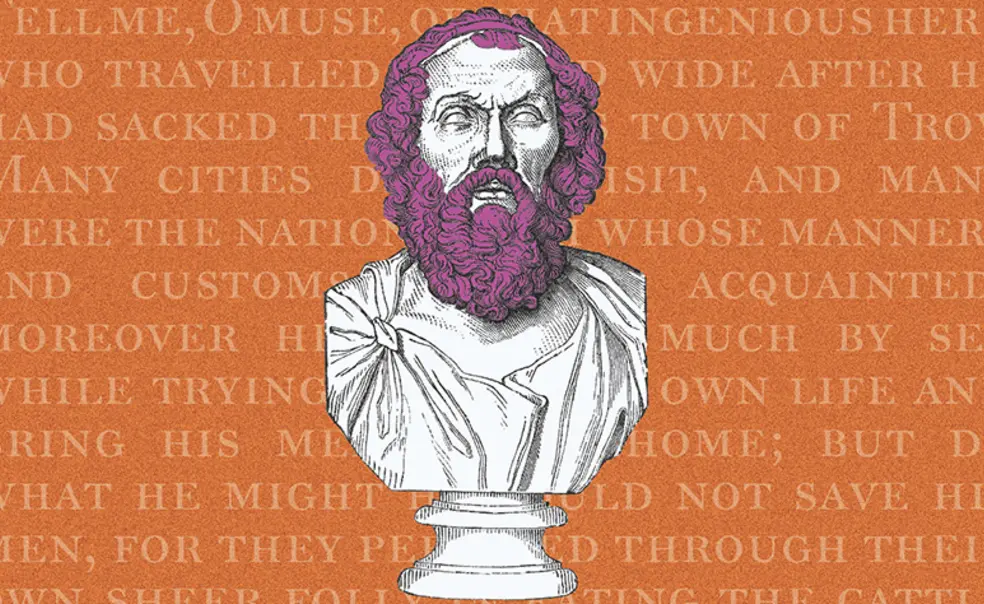Class Close-Up: Students Rewrite the Classics in Creative Course
Visiting fellow Kamila Shamsie says contemporary writers are using the Greek classics in different ways
How does one rewrite a classic story when it’s already, well, a classic? That’s the assignment for the 13 Princeton students enrolled in “Re-Writing the Classics,” a new course being taught this spring by Kamila Shamsie, a Belknap Visiting Fellow in the Humanities Council and the Department of English.
Shamsie can appreciate the monumental task: She’s authored eight books, including 2017’s Home Fire, which reimagined Sophocles’ play Antigone as a novel about a modern Muslim family living in the United Kingdom and forced to cope with Islamophobia and ISIS threats.
When she was offered the Belknap Fellowship and asked what she’d like to teach, “it was almost sort of automatic,” Shamsie said. “It struck me how many contemporary writers in the 21st century are using the Greek classics in different ways.” She wanted to bring together those adaptations to examine the echoes and parallels in the stories.
For nearly three hours every Wednesday afternoon in 30 McCosh Hall, Shamsie guides the class in discussions around topics ranging from how to approach writing about gods to sentence structure to how to draw on readers’ prior knowledge of a classic myth without alienating others who may not be as familiar with the story.
The Princeton students have been assigned Greek classics such as The Odyssey as well as modern retellings such as Madeline Miller’s Circe. Shamsie also arranged virtual class visits with current authors, including Miller, Ali Smith, Inua Ellams, and others, to talk to the class and answer students’ questions.
“I cannot overstate how fantastic it is to be able to speak with these authors about their work and about their creative process,” said Katie Hameetman ’23, who is majoring in classics. “It’s just been incredible to get such a wide range of perspectives.”
For the midterm, students wrote a proposal for their final assignment, which must be a short story adaptation of a classic Greek myth.
“I want them to be engaged as readers, but also as writers,” Shamsie says, calling the class “halfway between an English and creative writing course.”
Hameetman was particularly drawn to this class for exactly that reason; she had vowed to take at least one creative writing course before leaving Princeton.
Hameetman said the lessons she’ll take away from the course include how to find a fictional “entry point” when approaching well-established classical material — and how to find wiggle room in a story that seems absolute. “It’s very fun in the sense that it’s simultaneously intellectually challenging, but there’s so much exploration possible.”










No responses yet